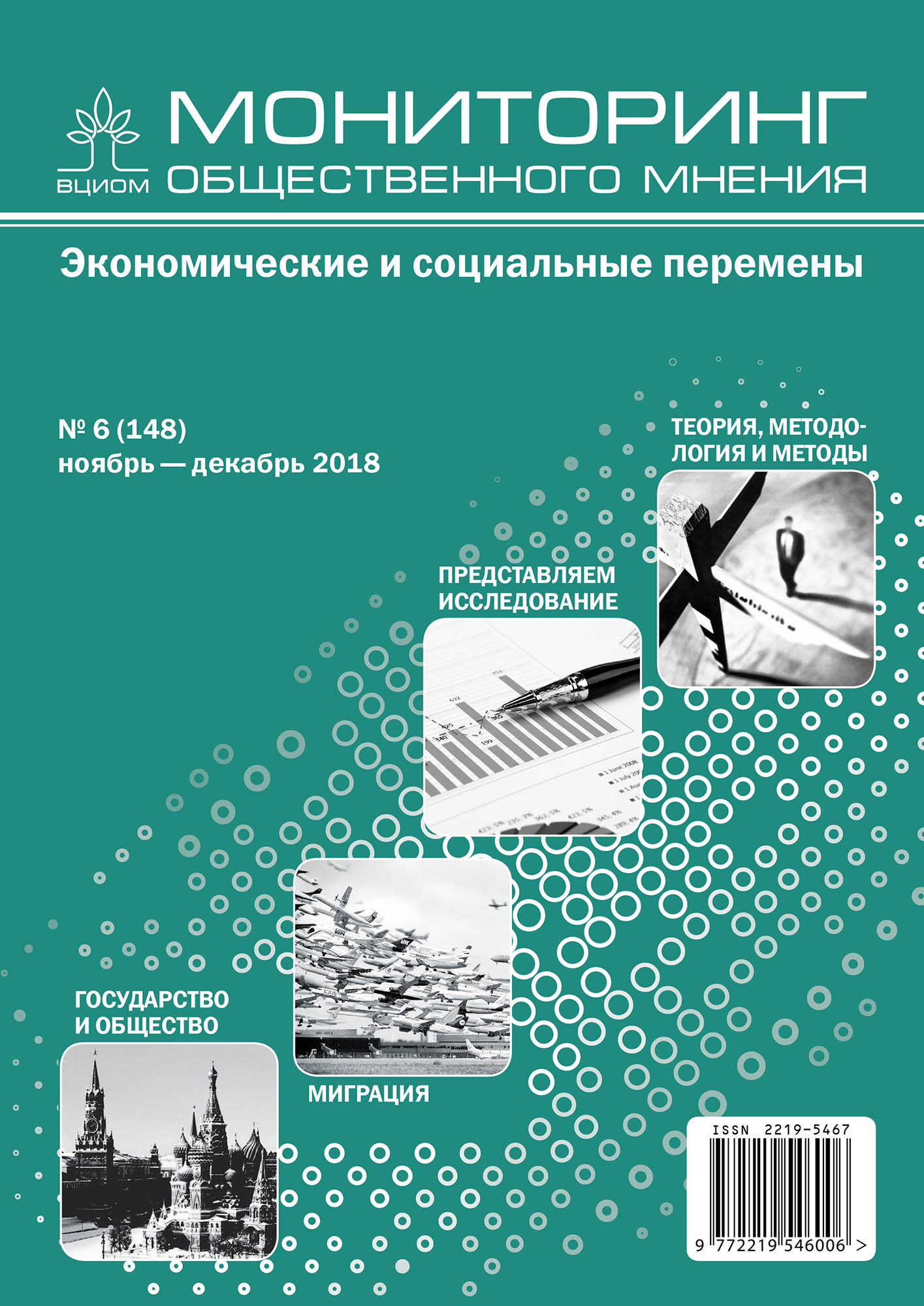Российские социологические и психологические исследования семьи в XXI веке: мета-анализ
DOI:
https://doi.org/10.14515/monitoring.2018.6.14Ключевые слова:
психология семьи, социология семьи, российские исследования семьи, парадигмы изучения семьи, мета-анализАннотация
В статье представлен анализ специфики публикаций в российских социологических и психологических научных журналах, посвященных исследованию семьи. Проанализированы тексты четырех научных изданий соответствующего профиля за 2000-2016 гг. Данные этого обзора частично сопоставимыми с результатами анализа статей за 1986-1991 гг., что позволяет оценить некоторые изменения. На основе качественно-количественного анализа ряда показателей сделаны выводы о специфике научных парадигм и состоянии «“нормальной” науки» (по Т. Куну) применительно к российской социологии и психологии семьи. Для последней семья, судя по публикациям в научных журналах, – малозначимый объект изучения, она рассматривается как фон для изучения личности (преимущественно ребенка) и межличностных отношений. Гетерогенность такого объекта исследования обуславливает выраженный интерес психологов к методической оснащенности и большему разнообразию методов сбора эмпирической информации, а также сопровождается фрагментацией профессионального сообщества по «школьно-журнальному» (речь здесь про научные школы) принципу. В российской социологии семьи значимость исследований семьи варьирует, но ее парадигма дуалистична (при доминировании естественно-научной); более согласована и стабильна, междисциплинарно открыта, ориентирована преимущественно на изучение структуры семьи и взаимодействие семьи с другими социальными институтами. При такой исследовательской оптике для исследователей фоном становится личность (супругов и детей). А «школьно-журнальная» фрагментированность российских социологов семьи проявляется по отношению не к отечественным, а к зарубежным авторам, что требует усиления междисциплинарного взаимодействия исследователей семьи.






